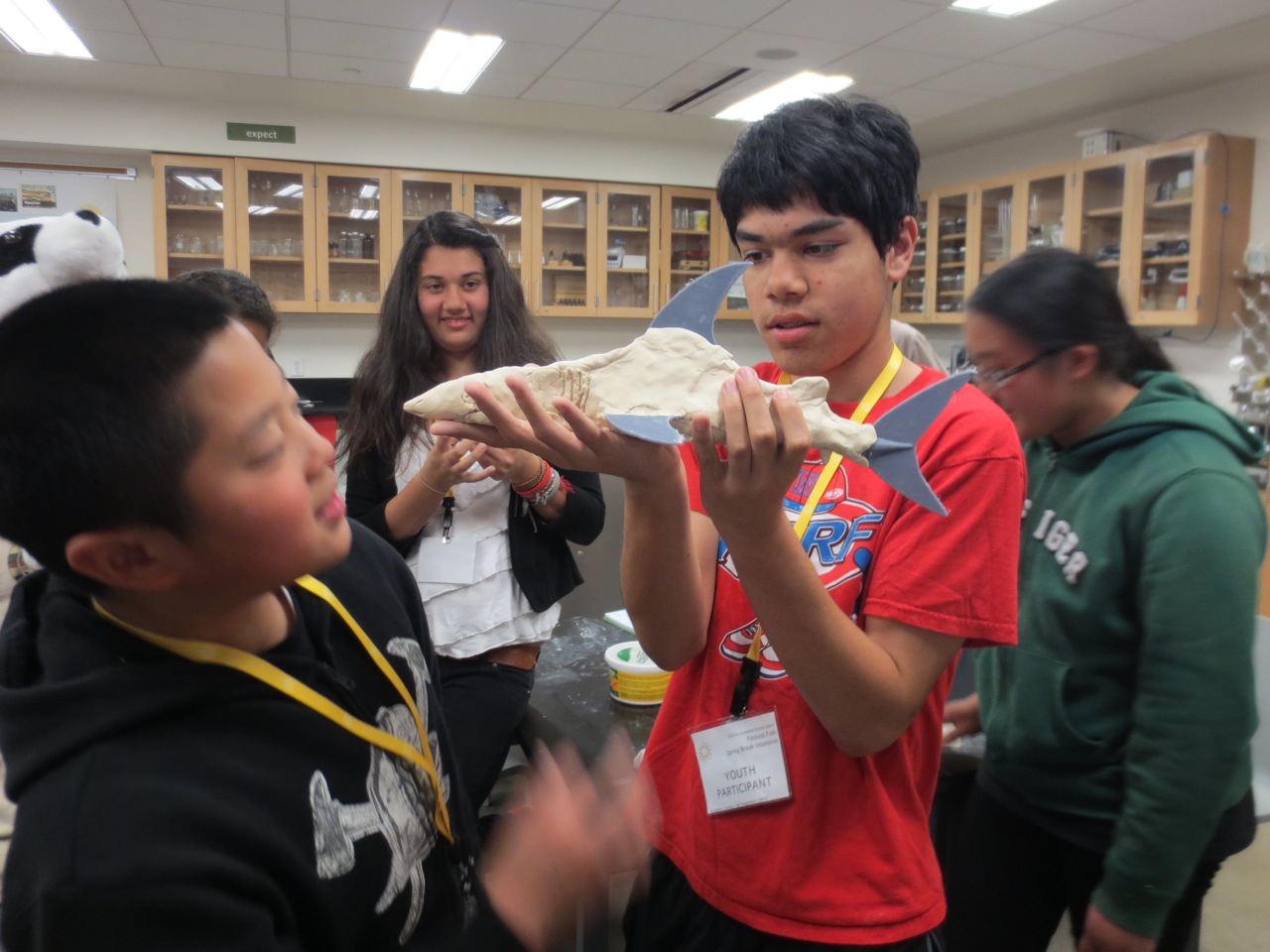I've been thinking a lot about this interview with former Facebook exec and angel investor Chamath Palihapitiya. It's chock-a-block with mind exploding ideas and concepts. As a teen educator, I'm particularly focused on the first ten minutes where Chamath talks about what he sees as a fundamental shift in what counts as "social capital." I highly encourage you to stop reading this, scroll down, and watch the first nine minutes and then come back here. I'll wait!…
… Okay, you're back.
For those that don't have time to watch the video, Chamath's contention is that we are in the midst of a societal upheaval in the way that people value certain credentials and experiences as markers of "success." In the traditional view of a "successful life," you pursue fairly specific educational goals (e.g. a higher education degree), you go to a "good school" (e.g. an Ivy League or prestigious business or medical school) and that gives you access to certain networks, opportunities and pathways that lead to a high-paid career.
Chamath argues that the digital economy is throwing these assumptions out the window, and replacing them with new markers of "social capital." In his view, it's less about where you went to school (or even if you went to school) and more about what you can do. What programming frameworks do you know? What percentage of market share can you grow? What projects can you shepherd from conception to public launch?
There are many leaders of the tech industry who don't have any college degrees or majored in non-technical fields. Tech companies more and more aren't hiring people based on their degrees or what schools they went to. Instead, they want to know what is your skillset and your ability to help meet company goals. And in his view, if this can work for the tech industry, there is no reason why it can't work for any other industry.
You can watch the video (at least the first 8 minutes or so) here.
I have so many questions about the assumptions and points that Chamath makes in his analysis. I don't know if I believe his claim that the tech industry hires and promotes based primarily on skill and field knowledge, rather than more traditional indicators like what school you went to or what degrees you have. And even if this phenomenon is happening in the tech industry, I don't see how this new valuation of social capital might spread to other industries like health care, law, or scientific research.
But I agree that the pathways to success are more complicated now then when I was a high schooler. It used to be that going to a good four-year college was essential, and anything less was cheating yourself out of an important, formative development experience. So our goal as educators and mentors was to get seniors in high school to apply and go to college. Full stop.
It's not so clear cut nowadays. A young person can go online and get accreditations and certificates from an online university or training institute and be working a highly paid job for a fraction of the cost and time of a four year university. For example, Treehouse teaches programming, web design and business skills for $25 a month, which you can complete in just a few months. Many of these online training institutes even help you find jobs after you've completed their program, or keep your skills up to date later on in your career.
I have a number of friends who have gone through "boot camps" where they do a crash course in programming for a few months, and often have a job by the time they finish the camp. It's just the thing to do in San Francisco.
These shorter, cheaper training and certification programs might be more and more a viable option for young people. First of all, they will change jobs and even careers several times over the course of their lives. According to the Bureau of Labor Statistics, Americans change their jobs around 12 times over the course of their lives. So spending tens of thousands of dollars and four or more years of your life earning a degree to prepare for a job that you might only have for a small portion of your working life might not be a good investment.
Perhaps better to think of your life as a series of jobs that are continually training and preparing for, whether you are 18, 28, or 48. That's certainly how I view my own career path.
I studied sociology in undergrad and political science in graduate school. My work history has spanned the gamut from database manager to nonprofit membership director, online community manager, digital video producer, NGO communications manager, and now senior manager of digital learning. Very little of what I did at these jobs had any relation to the specific subjects of my university degrees. But each one, in some way, prepared me for the next one.
So, as a teen educator, how to I prepare our young people to be successful (however they define it) and pursuing their passions (which will evolve over time)? It's not as simple as identifying a future job you might want and then pursuing with laser-like focus a multi-year degree program that prepares you just for that one job. In fact, that's possibly a recipe for failure, given the instability of the economy and the world that we live in.
So what should we be preparing our teens for, if the pathway is more complicated and uncertain? There's a lot of answers to that question, that will vary depending on the individual young person, their life situation, and interests. But one answer is to cultivate competencies and skills that will serve them no matter what they end up doing.
One competency Chamath calls "Dynamic Range" which he defines as "the ability to think outside of the box, get dropped into the middle of nowhere and figure it out." I call this the ability to "pivot" in the face of changing circumstances, rather than get overwhelmed by them. We have our teens develop their "pivoting" abilities by giving them control of projects that they work on, from conception to design, iteration, testing and launch. As they encounter problems, challenges and bugs, they are encouraged to see those as just more data points that can improve the final outcome of their projects, rather than "setbacks" or "failures."
That's certainly part of the toolkit I would want my teens to develop as they transition toward adulthood. Also, systems thinking, transmedia navigation, teamwork and collaboration skills, and learning metacognition, among others.
Meanwhile, figuring out how to expose our teens to the variety of pathways toward professional careers is something that I and others on my team will keep working on.
IMAGE CREDITS:
- "TechCrunch Disrupt NY 2013 – Day 1" By TechCrunch – https://www.flickr.com/photos/techcrunch/8692200535, CC BY 2.0.
- "Skarktopus presentation" by Rik Panganiban.

